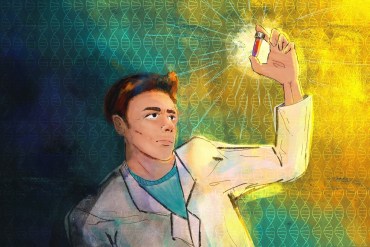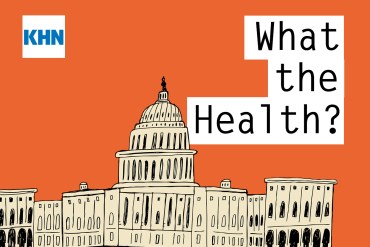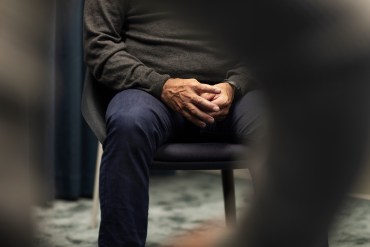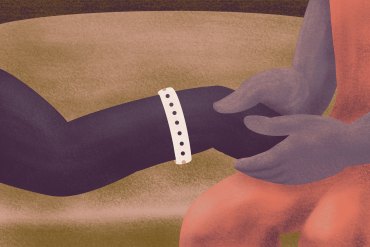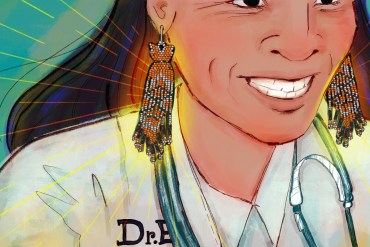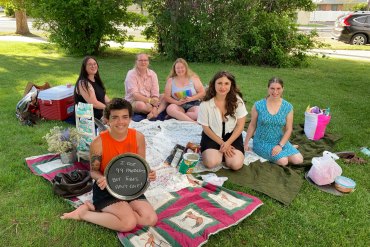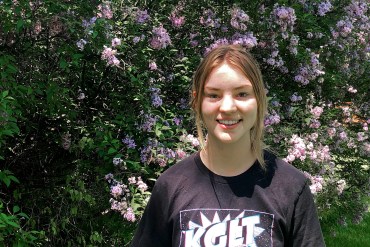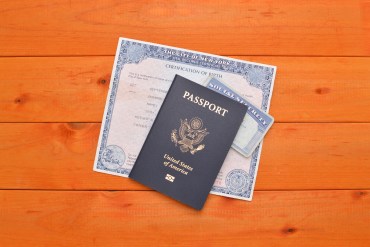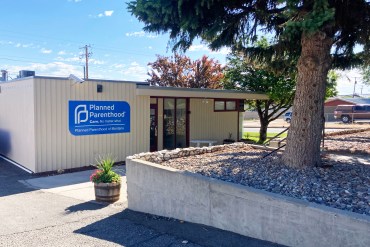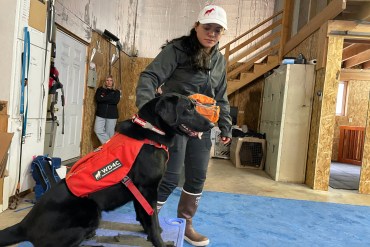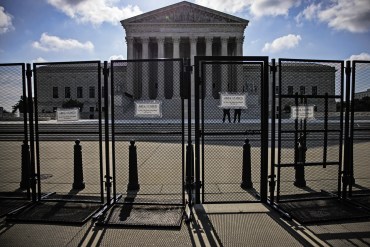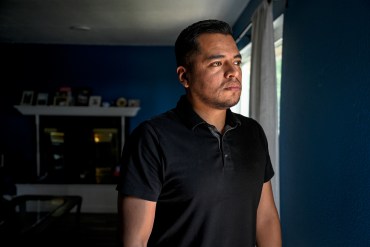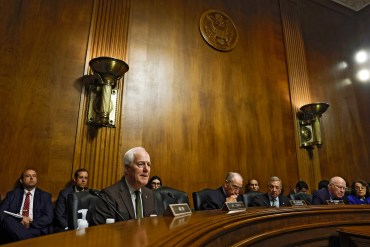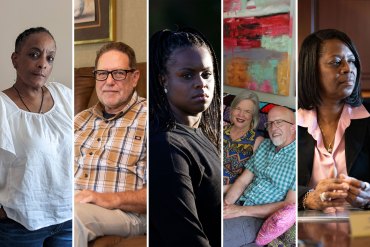Exploitative practices in medical research have contributed to the underrepresentation of Native people in clinical trials. Episode 10 explores the efforts of Indigenous scientists to rebuild this broken trust through tribally controlled research.
KHN’s ‘What the Health?’: Kansas Makes a Statement
In the first official test vote since the Supreme Court overturned Roe v. Wade, voters in Kansas’ primary said in no uncertain terms they want to keep a right to abortion in their state constitution. Meanwhile, the Senate is still working to reach a vote before summer recess on its health care-climate-tax measure, but progress is slow. Tami Luhby of CNN, Sandhya Raman of CQ Roll Call, and Rachel Cohrs of Stat join KHN’s Julie Rovner to discuss these issues and more. Also this week, Rovner interviews KHN’s Bram Sable-Smith, who wrote the latest KHN-NPR “Bill of the Month” installment about a very expensive ambulance trip.
When Mental Illness Leads to Dropped Charges, Patients Often Go Without Stabilizing Care
When criminal suspects are deemed too mentally ill to go through the court process and their charges are dropped, they can be left without stabilizing treatment — and sometimes end up being charged with additional crimes.
Music Festivals Embrace Overdose Reversal Drugs, but Fentanyl Testing Kits Remain Taboo
Music festival promoters are allowing distribution of overdose reversal medication as fentanyl deaths continue to surge. But nonprofits and volunteers are often left to do the work, and more controversial forms of harm reduction aren’t openly allowed.
Hospices Have Become Big Business for Private Equity Firms, Raising Concerns About End-of-Life Care
Private equity firms are seeing opportunities for profit in hospice care, once the domain of nonprofit organizations. The investment companies are transforming the industry — and might be jeopardizing patient care — in the process.
‘American Diagnosis’: Two Indigenous Students Share Their Path to Medicine
A lack of Native physicians means many tribal communities rely on doctors who don’t share their lived experience, culture, or spiritual beliefs. In Episode 9, meet two medical students working to join the ranks of Indigenous physicians.
Post-‘Roe,’ People Are Seeking Permanent Sterilizations, and Some Are Being Turned Away
Doctors in states where abortion is or could be banned say more patients are seeking permanent sterilization procedures, but some patients are reporting that providers are unwilling to operate on people of childbearing age.
Kids Want to Put Montana on Trial for Unhealthy Climate Policies
Sixteen children and young adults are suing the state over energy policies they say are hurting their health and environment. The flooding that closed Yellowstone National Park may show they have a point.
Patients With Epilepsy Navigate Murky Unregulated CBD Industry
The FDA has approved a cannabis-derived drug, Epidiolex, to treat some forms of epilepsy. Now people who have other forms of the condition are using over-the-counter CBD products in hopes of taming their seizures. But doctors and patients worry about the unregulated world of CBD, in which product ingredients can be a mystery.
Colorado’s Efforts Are Not Enough to Solve Its Ozone Problem
Some health experts said measures underway by state and federal officials won’t lower ozone pollution to safe levels across nine counties of Colorado’s Front Range.
A 63-Year-Old Transgender Woman Is Caught in Montana’s Birth Certificate Dispute
Montana is one of a handful of states that bar transgender people from changing the sex on their birth certificates. Health professionals say that gender marker should be erased completely.
Montana Clinics That Provide Abortions Preemptively Restrict Pill Access for Out-of-State Patients
Montana is an island of legal abortion, but three of the state’s five clinics are limiting access to abortion pills for out-of-state patients in an effort to protect themselves and patients from legal attacks.
Montana’s Blackfeet Tribe to Use Dogs to Sniff Out Disease and Contaminants
The Blackfeet Nation is experimenting with a new way to detect chronic wasting disease in animals used by tribal members for food and cultural practices.
Sheriffs Who Denounced Colorado’s Red Flag Law Are Now Using It
Petitions for protective orders under Colorado’s red flag law have been filed in more than half the counties that opposed it and declared themselves “Second Amendment sanctuaries.”
Three-Year Abortion Trends Vary Dramatically by State
About 930,000 abortions occurred in the U.S. in 2020, an 8% increase from 2017. But that nationwide figure belies dramatic variation among states — disparities expected to magnify in the wake of the Supreme Court’s decision to strike down Roe v. Wade.
Five Things to Know Now That the Supreme Court Has Overturned Roe v. Wade
By undoing that landmark decision, the law of the land since 1973, the court has empowered states to set their own abortion restrictions — so where people live will determine their level of access.
Trump’s Legacy Looms Large as Colorado Aims to Close the Hispanic Insurance Gap
Hispanic residents have long been among the least likely to have health insurance — in Colorado and across the country — in part because of unauthorized immigrants. The state is expanding coverage to some of them, although the change runs up against lingering fears about the use of public benefits.
Tribes Show Little Interest in Offering Abortions on Reservations Despite Speculation They Could
The notion that Native American nations could use tribal sovereignty to bypass state restrictions on abortion if Roe v. Wade falls is an idea largely proposed by non-Native groups.
Senate Deal Raises Hopes for a Reduction in Gun Suicides
A bipartisan U.S. Senate agreement on guns that focuses on mental health raises hopes and doubts in rural Western states with high suicide rates and easy access to guns.
Upended: How Medical Debt Changed Their Lives
People talk about the sacrifices they made when health care forced them into debt.




